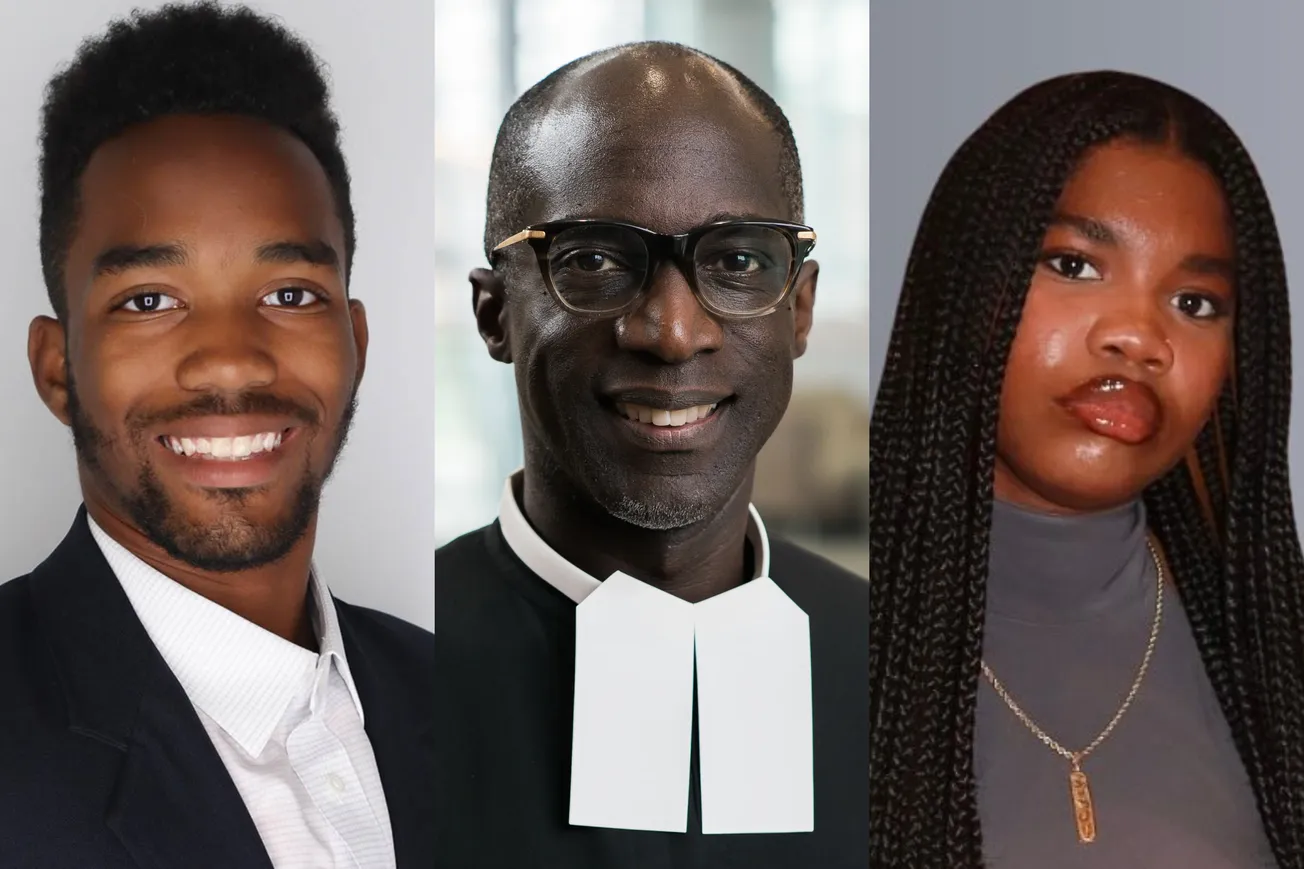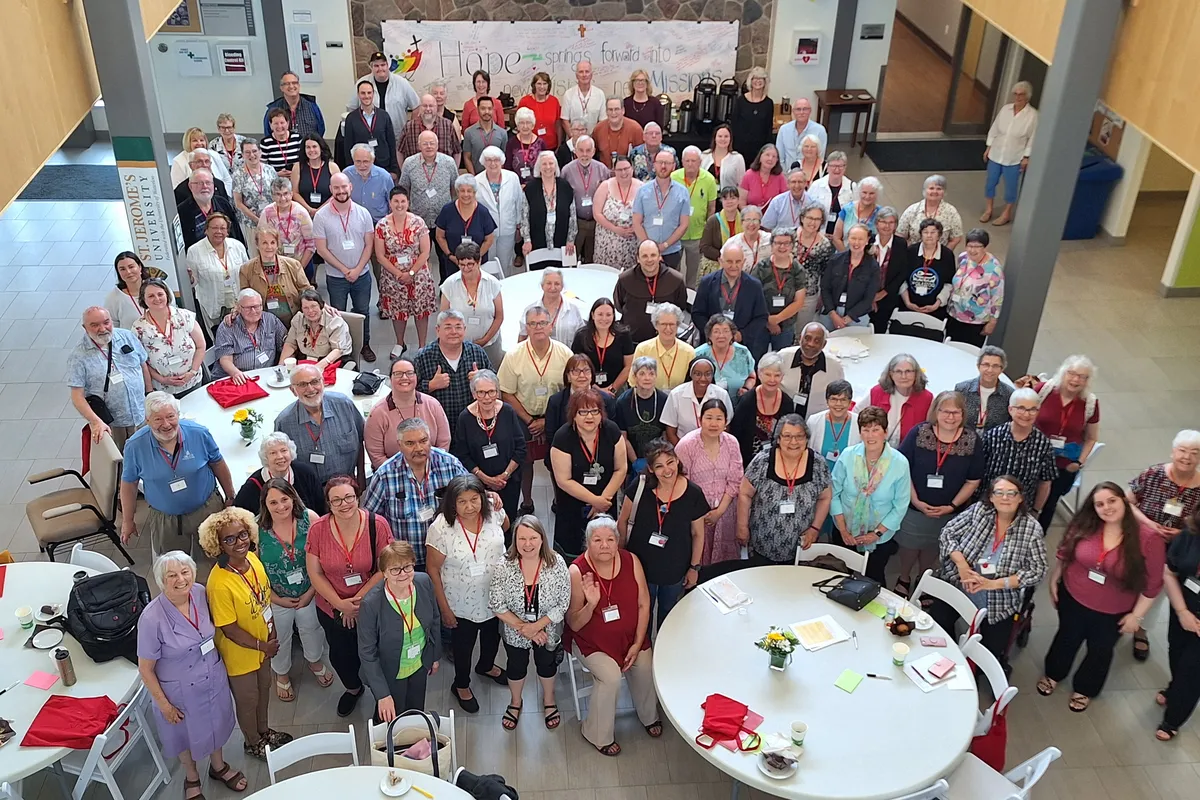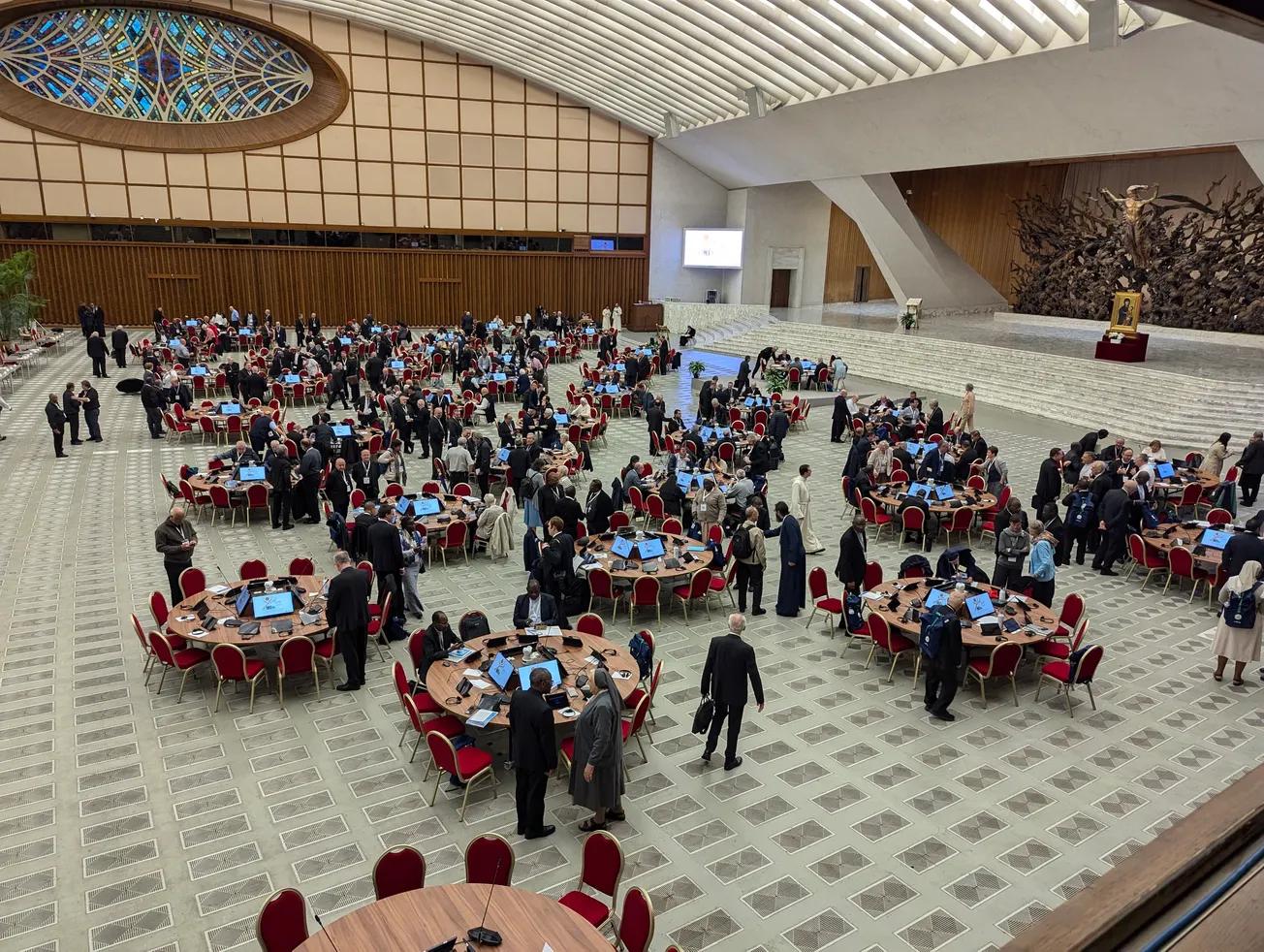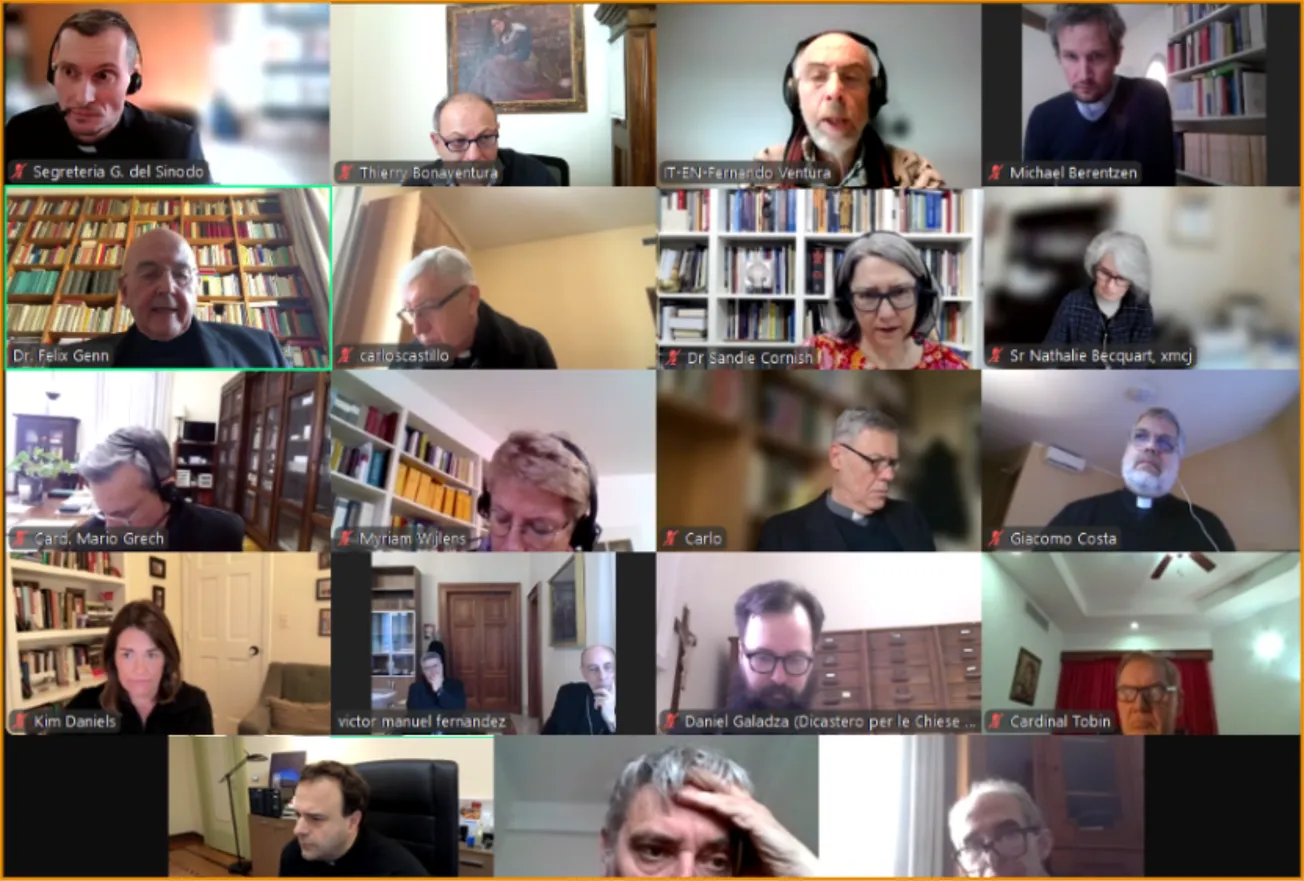The Synod on Synodality has concluded, but one group tasked with bringing its findings to fruition are those involved in Catholic education, especially young students navigating a changing American religious landscape.
A student pilgrimage to Rome marked a high point of the monthlong synod proceedings in October, where an international—though mostly American—group of over 120 students from more than 14 Catholic universities interacted with delegates and brought their unique concerns to the floor in a livestreamed listening session on Oct. 18 at the Vatican.
Mike Whaley, an African-American Catholic and sophomore theology student at Villanova University, said the encounter was a “major success” that showed the willingness of synod promoters to face difficult questions in a largely unprecedented context—much like the synod itself.
“To open yourself up to something that's never happened before, where you have a bunch of questions being asked and answered in a globally televised event, that is something that, honestly, I commend them for having the courage and the vulnerability to do,” Whaley told BCM, adding that he wished the event could have included more tangible action steps.
“I also understand that you can't exactly, on the record, come out and say tangible, specific things when at that point in time, when the conversation was had, the synod was not even concluded.”
On the final day of the synod, roughly a week after the students’ event, a final report approved by the delegates was released, speaking repeatedly on the role of Catholic education in promoting formation, cross-cultural dialogue, women’s leadership, and synodality itself.
“The simplest and most precious [fruits of the synodal journey] mature in the life of families, parishes, movements, small Christian communities, schools and other movements,” reads a section in the document’s introduction.
“This is where the practice of conversation in the Spirit, community discernment, sharing of vocational gifts and co-responsibility in the mission is growing.”
Clowee Jones, a sophomore advertising major from a Protestant background, was also present for the pilgrimage. She says her experience in Rome—and in the related class at the University of San Francisco, where she studies—has inspired her and other students to be more involved in religious activities on-campus.
“It’s definitely like having a little revival, and people are starting to get more excited about things going on in the Church,” she said.
“A big thing for the students in my class was women in new positions in the Church, or people of color, or what that looks like for people in the LGBTQ+ community. People had questions, and it was just interesting to see students from other schools, their questions, their personal experiences and ideas, and what it looks like to become a listening Church.”
Br Ernest Miller, FSC, a Black Catholic who assisted with part of the pilgrimage, said that reactions to the listening session were not monolithic. At least some of the reactions reflected much of the stateside sentiment on the synod overall, that it is not adequately addressing issues seen as paramount for Church renewal.
Even so, he says, the uniqueness of a Vatican invitation to dialogue with the delegates was likely in itself a moment of palpable grace.
“This is the first time that 99% (if not all) of the students were in an environment like that on the Friday, right?” he said. “So I think just being in that space right was probably exciting.”

It also seems apparent that the takeaways from students and faculty of different backgrounds may have differed on principle. Jones and Whaley were among only a handful of African-American students on the pilgrimage, and Miller says he was likely the only African American in a role of accompaniment.
“I didn't really see myself reflected in the students, but my ideology was that I wanted to be the representation that I wanted to see,” said Jones.
“At the same time, how are we going to ask people how to reach marginalized communities? How do we reach the youth? Marginalized communities were not in Rome [on the pilgrimage]. I mean, we were there, but we weren't there.”
Even so, Whaley and Jones both noted that the student listening session and the synod itself represent an open door for progress in the Church, though acknowledging that outcomes will not be immediate and that various institutional challenges remain.
One sign of hope and, surely, room to grow was that the United States was one of the only nations to send college students as synod delegates—despite many thriving Catholic communities in the Global South skewing heavily toward young people.
“I think in our American context, we are at a crossroads in a lot of things, and I think we all collectively recognize that the impetus is going to be on the young people as the agents of change and as those who are going to have to guide us into whatever this next era of our society is going to look like,” said Whaley.
“That was a smart choice because young people need to see themselves represented. Sometimes, the Church, at least the way that it's structured, you can feel very far from it… The fact that they're college students, that's already reflected in me. It’s like, ‘OK, I can see myself there.’ You're my vote, basically.”
Looking forward to a future of synods that continue to include increasingly diverse pools of delegates—including students, women, lay people, and others—Whaley spoke of the concept of synodality itself as evolving and yet firmly rooted in tradition.
“This idea of synodality is something that is ever ancient, but also simultaneously ever new. And I think it's something that's here to stay,” he said.
“I think it's a skill that we all ought to embrace, not necessarily in the sense that we need to fully embrace radical and different change, but in the sense that these skills of listening to each other, of communally discerning, are practices we all ought to adopt.”
Nate Tinner-Williams is co-founder and editor of Black Catholic Messenger.
Want to donate to BCM? You have options.
a.) Support our #iGiveCatholic campaign.











